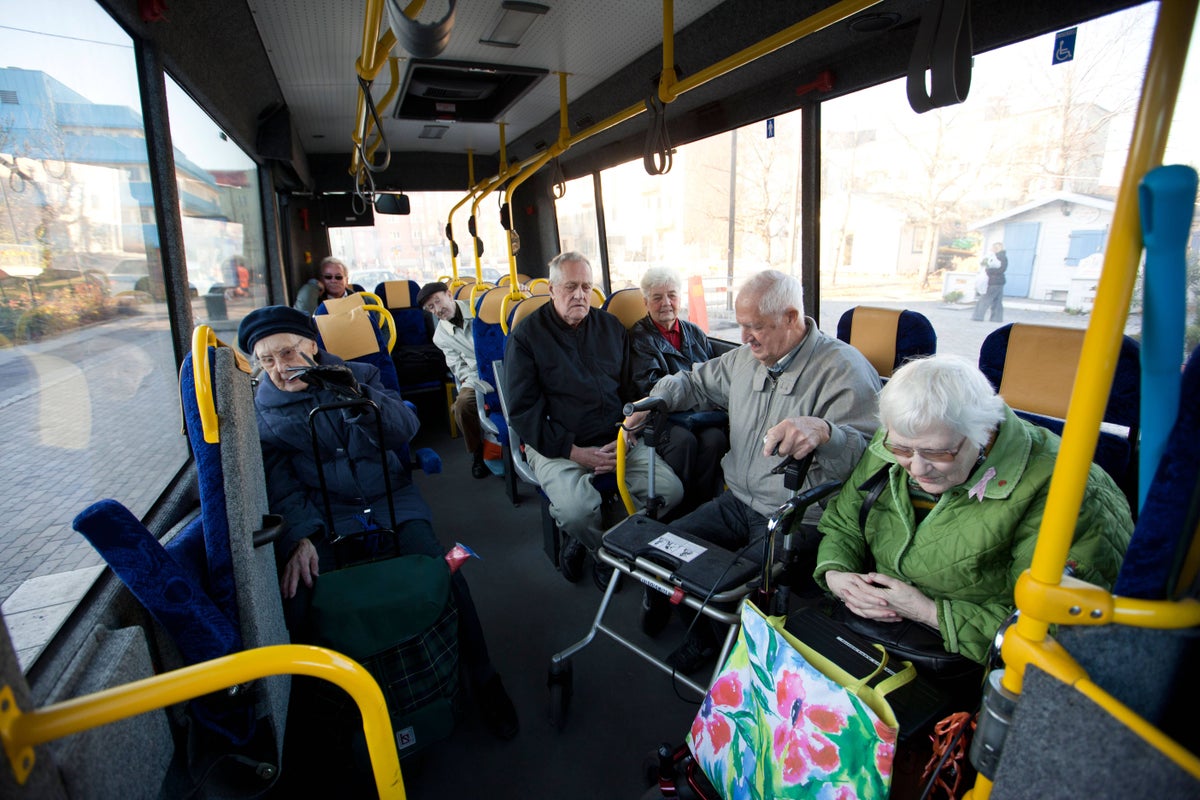
The Government’s promised bus “revolution” is failing to address a steep decline in rural services as journeys hit a historic low, councils have warned.
The Conservative-led County Councils Network (CCN), which represents 37 authorities serving nearly half the population in England, said problems with the delivery of the Government’s national bus strategy is threatening to undermine a key aim of the levelling up agenda.
Research commissioned by CCN found the bulk of the £1.1 billion in funding made available as part of the flagship national bus strategy went to urban authorities following a bidding process.
This was despite these areas experiencing smaller percentage falls in passenger numbers since 2010.
Analysis of Department for Transport data found passenger numbers in rural areas declined by 14% between 2010 and 2019, compared with a fall of 8.5% in metropolitan areas outside London over the period.
Lockdown restrictions during 2020-21 caused passenger numbers to fall by a further 35% in both rural and metropolitan communities.
However, the study showed urban areas received £739 million (67%) of the available Government funding, while rural areas received £336 million – just 10% of the value of their submitted bids.
Buses have long been a lifeline for many people in rural areas, particularly the elderly and the disadvantaged. But outside of London and the cities, far too many services are at best patchy, and at worst non-existent— Stephen Giles-Medhurst, CCN transport spokesperson
The report said more than one in four bus services in county areas have “vanished” over the last decade, with total bus miles travelled falling faster than in cities and adjacent places.
This limited availability has led to a historic low of 344 million fewer passenger journeys now being taken in rural areas compared with 2020, the report said.
CCN transport spokesperson Stephen Giles-Medhurst said despite high hopes, county councils felt let down by the Government’s funding allocations as the money has been “directed to places that arguably needed the least help”.
He added: “Buses have long been a lifeline for many people in rural areas, particularly the elderly and the disadvantaged. But outside of London and the cities, far too many services are at best patchy, and at worst non-existent.
“As their bids for the funding showed, councils have serious ambitions when it comes to improving and modernising their bus services. But it is increasingly likely that reversing the decline in passengers is a challenge to be picked up by a future government.
“Today’s report sets out a number of recommendations to transform local services. Failure to act will keep buses in county areas in a state of managed decline, with consequences for our residents.”
Announcing the plans in 2020, former transport secretary Grant Shapps said the Government was taking the lead by “launching a revolution in bus services”.
The national bus strategy was published in 2021 with the aim of increasing bus use above 2019 levels in the medium term.
Then-prime minister Boris Johnson said “better buses will be one of our major acts of levelling up” while the strategy added “buses are vital to ensuring the economy meets net zero carbon emissions and driving the green transformation”.
Under the strategy, transport authorities were required to produce a bus service improvement plan and the first of two rounds of allocations were confirmed in April 2021.
CCN called on the Government to provide a further round of funding as councils in rural areas have received only a fraction of the money needed to deliver their plans.
The organisation also called for greater transparency over how bids are evaluated and the amount of funding that can be expected.
CCN also called for the Government to move away from competitive bidding and allocate funding based on need and increasing passenger numbers.
Labour has proposed allowing local authorities to introduce bus franchising without Government approval and an end to the ban on creating council-owned bus companies.
But the report said the proposals are likely to have a limited take-up in county areas due to the limited viability of rural services.
A DfT spokesperson said: “This report only focuses on just one part of the £3.5 billion we’ve put into buses since March 2020.
“Our new bus service improvement plan funding will be focused on areas that didn’t receive support under the original scheme.”







